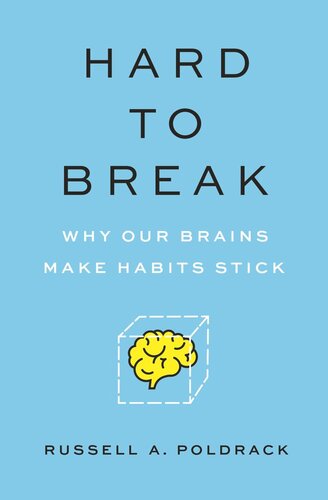

Most ebook files are in PDF format, so you can easily read them using various software such as Foxit Reader or directly on the Google Chrome browser.
Some ebook files are released by publishers in other formats such as .awz, .mobi, .epub, .fb2, etc. You may need to install specific software to read these formats on mobile/PC, such as Calibre.
Please read the tutorial at this link: https://ebookbell.com/faq
We offer FREE conversion to the popular formats you request; however, this may take some time. Therefore, right after payment, please email us, and we will try to provide the service as quickly as possible.
For some exceptional file formats or broken links (if any), please refrain from opening any disputes. Instead, email us first, and we will try to assist within a maximum of 6 hours.
EbookBell Team

0.0
0 reviewsThe neuroscience of why bad habits are so hard to break—and how evidence-based strategies can help us change our behavior more effectively
We all have habits we’d like to break, but for many of us it can be nearly impossible to do so. There is a good reason for this: the brain is a habit-building machine. In Hard to Break, leading neuroscientist Russell Poldrack provides an engaging and authoritative account of the science of how habits are built in the brain, why they are so hard to break, and how evidence-based strategies may help us change unwanted behaviors.
Hard to Break offers a clear-eyed tour of what neuroscience tells us about habit change and debunks “easy fixes” that aren’t backed by science. It explains how dopamine is essential for building habits and how the battle between habits and intentional goal-directed behaviors reflects a competition between different brain systems. Along the way, we learn how cues trigger habits; why we should make rules, not decisions; how the stimuli of the modern world hijack the brain’s habit machinery and lead to drug abuse and other addictions; and how neuroscience may one day enable us to hack our habits. Shifting from the individual to society, the book also discusses the massive habit changes that will be needed to address the biggest challenges of our time.
Moving beyond the hype to offer a deeper understanding of the biology of habits in the brain, Hard to Break reveals how we might be able to make the changes we desire—and why we should have greater empathy with ourselves and others who struggle to do so.